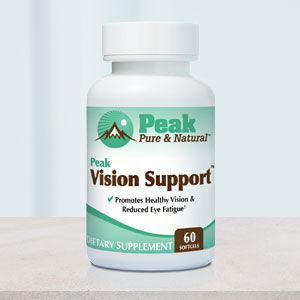Get Easy Health Digest™ in your inbox and don’t miss a thing when you subscribe today. Plus, get the free bonus report, Mother Nature’s Tips, Tricks and Remedies for Cholesterol, Blood Pressure & Blood Sugar as my way of saying welcome to the community!
The symptoms that predict whether MCI turns to Alzheimer’s

For people who live with mild cognitive impairment or MCI, wondering if memory lapses will progress from annoying to frightening can keep you up at night.
In other words, if you suffer from MCI how likely are you to develop Alzheimer’s disease (AD) and will you or family members be able to see it coming?
Now, a new study has shed light on exactly what symptoms to be on the lookout for that can predict whether the problems with memory, language and judgment that go along with MCI will turn into an Alzheimer’s diagnosis.
The Neuropsychiatric Symptom Index
The research, performed at the Medical University of South Carolina, set out to quantify the connection between neuropsychiatric symptoms (NPS) and the journey from MCI to dementia.
For the study, the scientists recruited 300 patients with MCI, aged 65 and older, from the Alzheimer’s Disease Neuroimaging Initiative database.
Each participant underwent a Neuropsychiatric Inventory (NPI) assessment to document NPS symptoms — such as anxiety, depression, delusions, hallucinations, abnormal movement behavior and sleep disorders — as potential early signs of preclinical AD to establish a prediction model for AD.
And while the outcome showed that more than a quarter of the MCI patients went on to develop Alzheimer’s, those who experienced more neuropsychiatric symptoms were far more likely to end up in the Alzheimer’s group when everything was said and done.
The study showed that for each one-point increase in NPI score, there was a three percent increase in the risk of an Alzheimer’s diagnosis.
In fact, the study showed that paying attention to NPS symptoms was a better predictor of mental decline than other established Alzheimer’s risk factors, which include heart disease, diabetes, stroke, high blood pressure and high cholesterol.
When asked about the real-world implications of their research, the team had this to say, “If you feel down or anxious and you experience memory issues as you age, it is important to seek help early and get a thorough evaluation for both cognitive and mental health concerns.”
Evaluating the risk to you or your loved one
So if you or your loved one is living with MCI, evaluation of neuropsychiatric symptoms is key.
Your doctor should use the Neuropsychiatric Inventory Questionnaire to understand not only which symptoms are present, but also their severity and the distress they cause to the caregiver.
By understanding the risk of progression from MCI to Alzheimer’s, both patients and families can be better prepared for the journey ahead.
In addition to understanding progression risks, there are also steps you can take to reduce those risks at home. These include:
#1 – Exercising
Research, performed at Yonsei University College of Medicine, Republic of Korea, showed that physical activity can help prevent the slide from MCI to Alzheimer’s. Their study found that people with MCI, who exercised at a moderate or vigorous level for at least 10 minutes, more than once per week, had an 18 percent lower risk of developing Alzheimer’s disease.
#2 – Using pink noise
Certain sounds when you sleep, known as ‘pink noise’, have been shown to result in memory improvement in subjects who suffer from mild cognitive impairment.
#3 – Eating mushrooms
Mushroom eating has been found to slash MCI in half! According to researchers, this is likely due to a specific compound in mushrooms known as ergothioneine, which fights free radical damage throughout the body.
#4 – Improving head-to-toe blood flow
A study found that men taking prescriptions for ED medication were 18 percent less likely to develop Alzheimer’s. That little blue pill works by increasing a molecule known as nitric oxide (NO) in the lining of the blood vessels. This causes the blood vessels to widen, increasing blood flow and boosting oxygen to all the body’s organs and tissues — including the brain.
Editor’s note: Have you heard of EDTA chelation therapy? It was developed originally to remove lead and other contaminants, including heavy metals, from the body. Its uses now run the gamut from varicose veins to circulation. Click here to discover Chelation: Natural Miracle for Protecting Your Heart and Enhancing Your Health!
Sources:
Neuropsychiatric symptoms predict which patients with mild cognitive impairment develop Alzheimer’s disease – EurekAlert!














